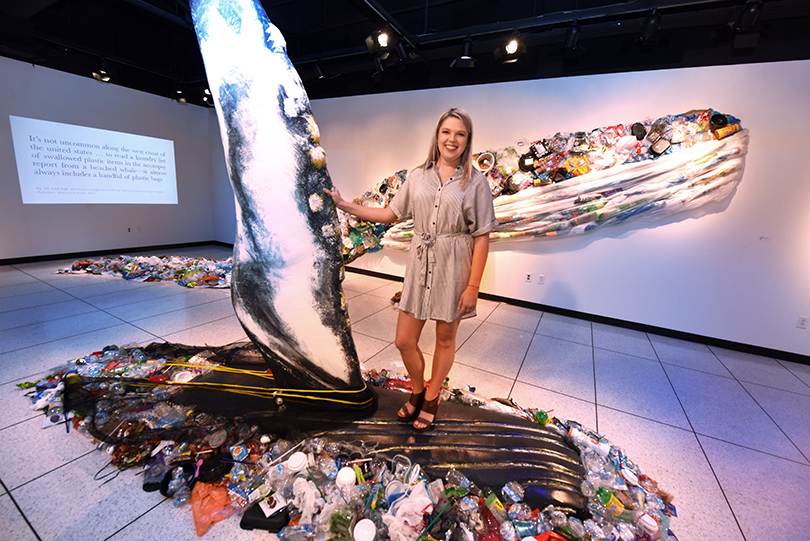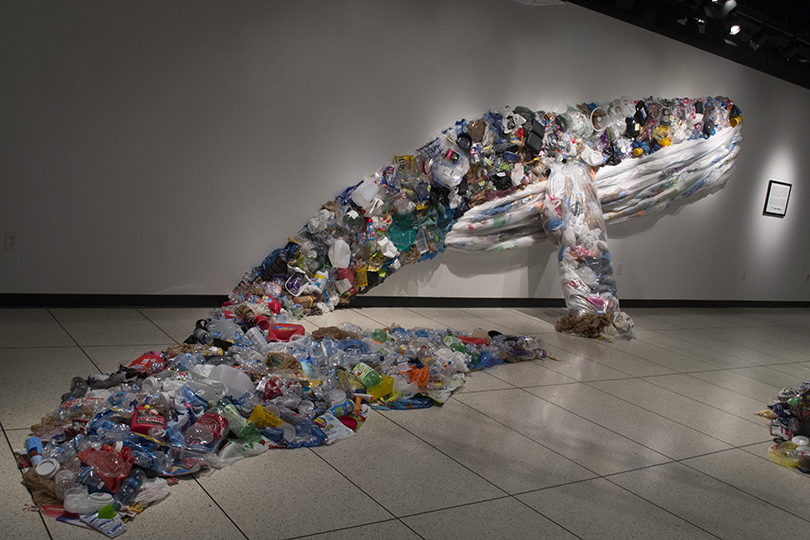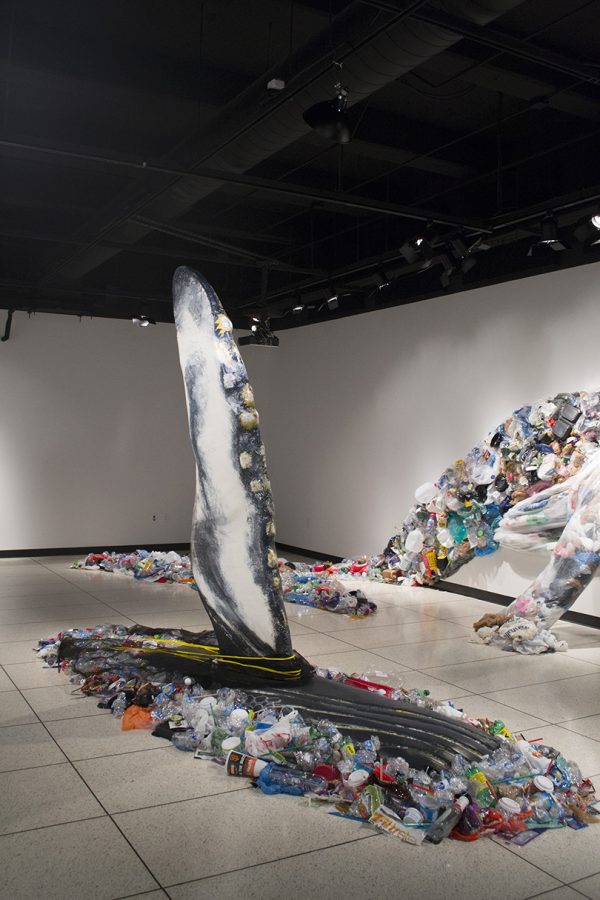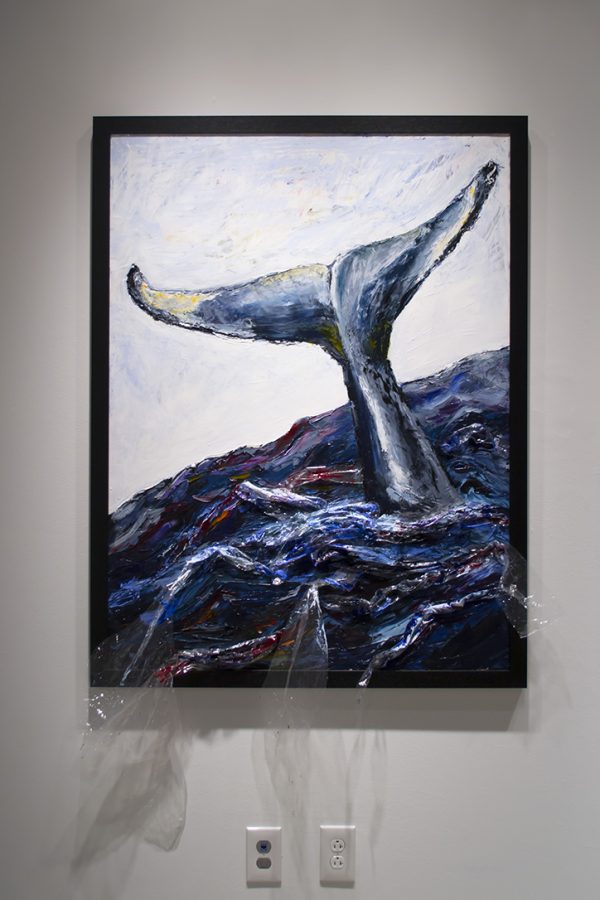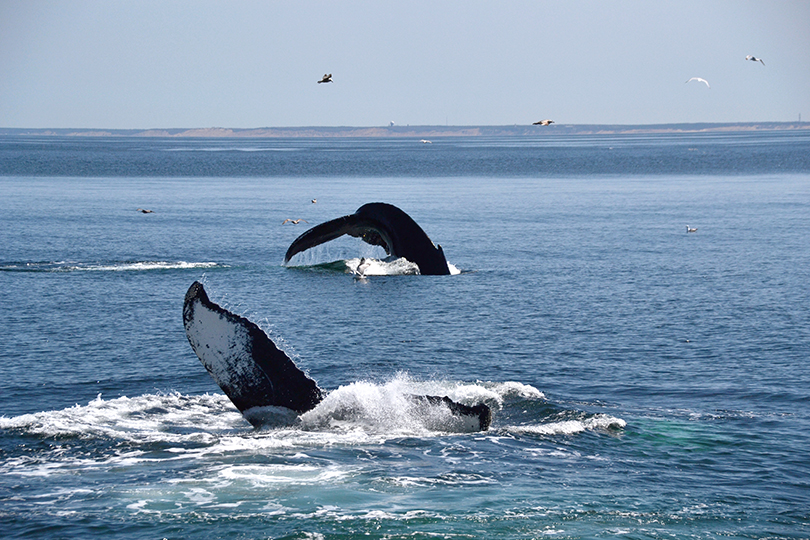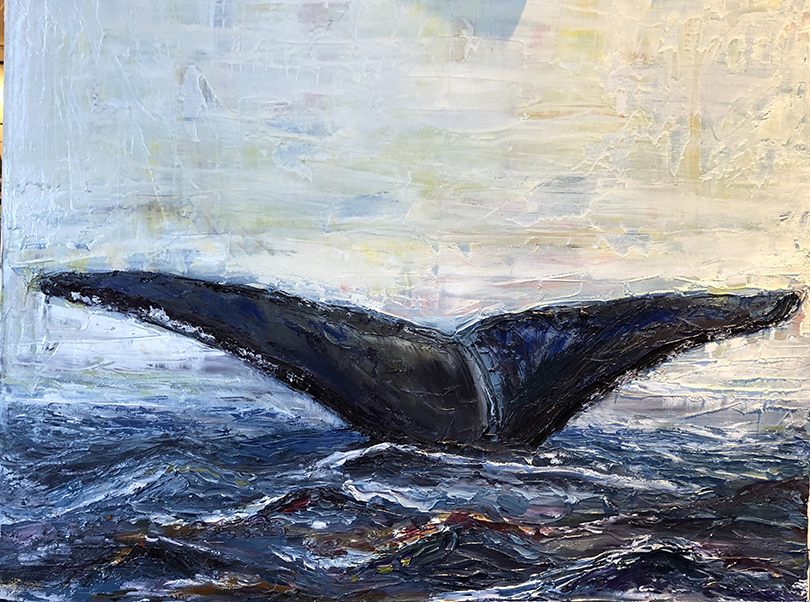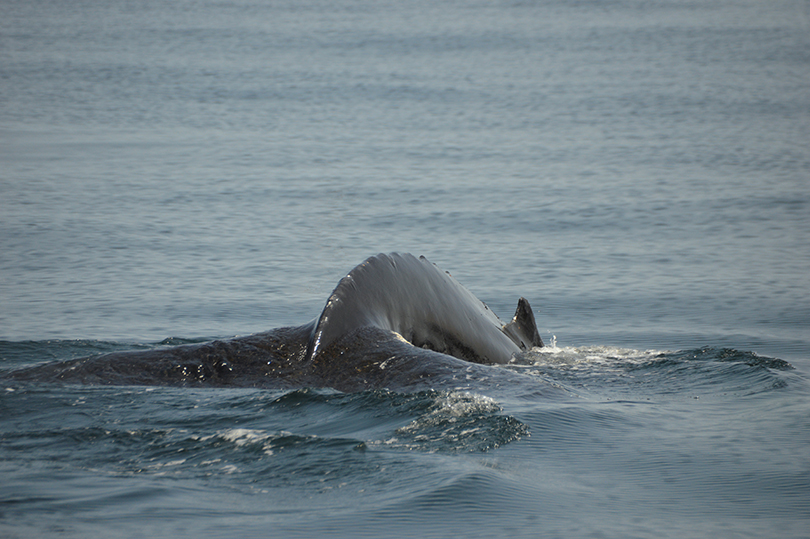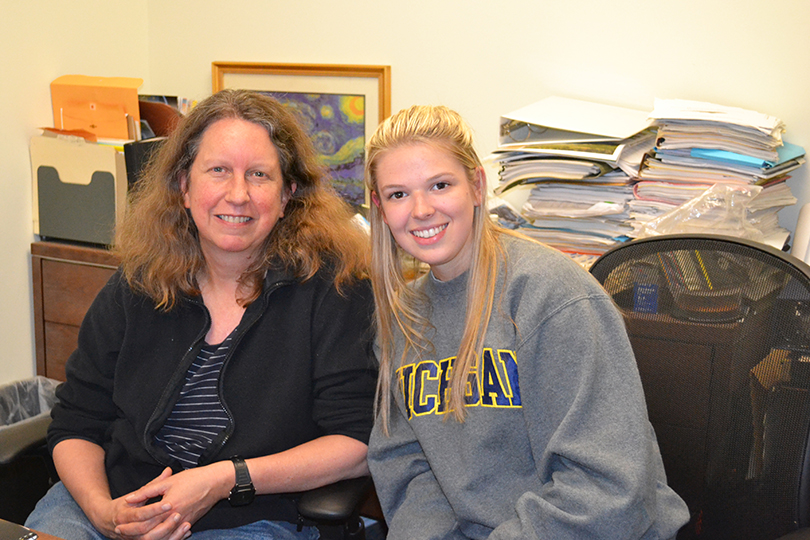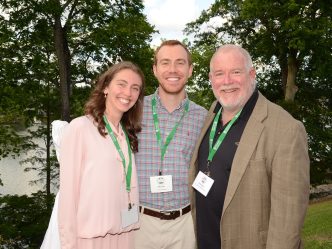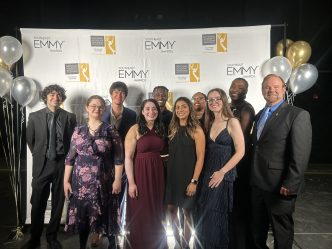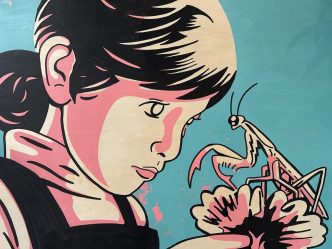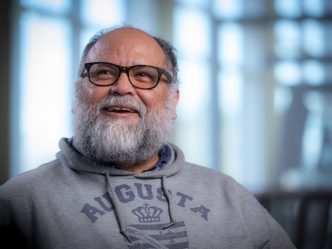Avalyn Zilke, Art
Between California and Hawaii, an estimated 80,000 tons of trash floats in the ocean. Many of this trash is plastic and it’s killing marine life and the environments they live in, like coral reefs.
A lifelong lover of the ocean and its inhabitants, particularly whales, Avalyn Zilke, senior art major, decided she should do something to bring awareness to this problem. And, for the past three years, that’s exactly what she’s done.
Prior to graduating, senior art students must prepare and present exhibitions of their artwork as part of a senior capstone course. Although Zilke was three years away from graduation and her senior exhibition, she knew it would center around her love of whales. There was only one problem, though. She’d never seen a whale in the wild, and it wasn’t realistic to create an entire art show about whales based solely on a picture in her mind.
Then, one of Zilke’s professors told her about the Pamplin Student Research and Travel Fund, a research grant for undergraduate students in the Katherine Reese Pamplin College of Arts, Humanities, and Social Sciences. She decided to apply.
“I thought, to create this art, I needed to see a whale and have that experience,” Zilke said. “People describe it as a magical, life-changing experience, and I felt like I needed to have that experience to create something meaningful.”
In April 2015, Zilke found out she was a recipient of the travel fund, and in May 2015, she traveled to Massachusetts. There, she met with naturalists, researchers and artists to discuss interactions between humans and whales and the negative effect those interactions can have on the whales.
“It was awesome to learn new information from one-on-one conversation with people who are studying these animals and trying to help them,” she said. “They’re not just talking about it.”
Zilke also went on several whale-watching expeditions where she finally saw a whale.
“It was probably the most amazing thing I’ve ever experienced,” she said. “Being in the boat and seeing something you love for the first time is awe inspiring. Everyone is quiet in their presence, so you can hear them. I cried. We saw a triple breach which is very rare, and it was amazing to see the whales in their natural habitat as opposed to a picture or video.”
Zilke left Boston and returned to Augusta with new experiences and a new purpose. She would still devote her senior exhibition to whales, but Zilke was also determined to help the animals she loves.
Most people don’t think a balloon released in Augusta will end up in the ocean. I want to educate people on what’s happening.
— Avalyn Zilke
“I decided my senior show would be about whales and how humans are negatively impacting their environment,” she said. “Most people don’t think a balloon released in Augusta will end up in the ocean. I want to educate people on what’s happening. We all love going to the beach, but we don’t necessarily notice the small things we do that negatively affect the ocean.”
Zilke decided her exhibition would be a combination of research, environmental activism and art. She drew inspiration from Junk Raft, Marcus Eriksen’s autobiographical account of his fight against plastic pollutants in the ocean.
She wanted to incorporate plastic trash into each piece created for the exhibition. But first, Zilke needed trash. And lots of it.
“For a year I collected trash from anyone willing to give me their plastic,” she said. “Many people commented on the impact of my project; they never realized just how much plastic they used in an average week.”
Once Zilke had enough plastic, it was time to begin creating art for her exhibition. Plastic trash was incorporated in each piece. Documentary photographs from Zilke’s trip were displayed alongside paintings. Plastic encompasses each canvas and is directly embedded in the paint.
The show also featured a large-scale installation of a whale covered in an average year’s supply of discarded plastics, and a life-size fin surrounded by trash.
“In the Pacific Ocean, there’s a Texas-sized area of plastics that covers the surface of the ocean and animals get stuck and ingest the plastic,” Zilke said “The garbage is supposed to be the water and that whale’s fin is coming out of the water.”
In April 2018, “Junk Whale: A Research Exhibition Breaking the Surface of Plastic Pollution” opened at the Mary S. Byrd Gallery of Art.
I wanted the show to be an immersive experience that was more research-oriented than artistic. So many people haven’t seen a whale in person and don’t realize how big they are. To think such a big creature could die from ingesting a potato chip bag is crazy, but it happens.
— Avalyn Zilke
“I hope people saw the show and learned from it,” Zilke said. “I wanted the show to be an immersive experience that was more research-oriented than artistic. So many people haven’t seen a whale in person and don’t realize how big they are. To think such a big creature could die from ingesting a potato chip bag is crazy, but it happens.”
As Zilke’s three-year journey ends and she prepares for graduation, she’s thankful for her time at Augusta University. Without the Pamplin Student Research and Travel Fund, she would have never realized her dream of helping the creatures she loves and seeing them in person. She encourages students to take advantage of this resource.
“I think everybody should apply for this funding,” she said. “Not enough people know about it. If you love something and want to learn more, apply for the grant. The worst anyone can tell you is ‘no.’ The experience and the opportunity are worth it.”
For Zilke, this opportunity was absolutely worth it. Her experience in Boston, culminating three years later in her senior exhibition, and the Department of Art and Design defined her Augusta University experience.
“The art department is amazing,” she said. “The professors really care about their students and push them to be there best. Their doors are always open, and not just for questions about art. They’ll talk to you about anything. I would recommend taking art classes to anyone, even if you’re not an art major.”
She particularly appreciates the mentor she found in Brian Rust, professor of art.
“He’s the best mentor a student can have,” Zilke said. “He’s not just interested in his students as artists, but as people. He doesn’t just want you to get through the semester, but wants you to grow as a person.”
These connections are what helped Zilke realize the path she wanted to take after graduation.
Although she is an art major, Zilke also enjoys the business world. Currently, she has an internship at Savannah River Site and hopes to continue in the field after graduation. Again, though, Zilke credits the Department of Art and Design with her success.
“I struggled in traditional business classes, but art taught me time management and to think outside of the box to solve problems,” she said. “I will continue to paint and be an activist, but that’s something I do for myself.”
While plastic continues to pollute our oceans, one thing is certain. Zilke will continue to paint, sculpt and raise awareness about the whales she loves so much and the effect of pollution on their environment.
At Augusta University, success is a choice.
This spring, we celebrate graduating seniors by recognizing students who are choosing to better themselves and their communities in 2018.
Celebrate with these members of Jaguar Nation and the entire Class of 2018 using the hashtag #AUGGRAD.
Interested in Art?
Learn more about degrees offered through Augusta University’s Department of Art & Design.
 Augusta University
Augusta University
